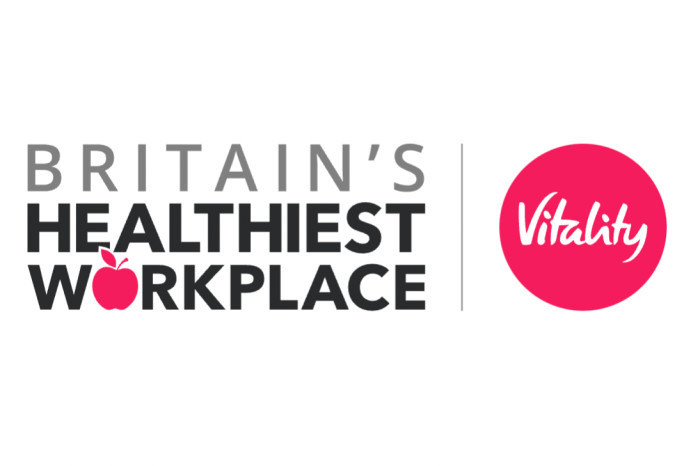The squeezed middle — how do managers cope?

Roula Khalaf, Editor of the FT, selects her favourite stories in this weekly newsletter.
Managers can often feel like they are the “squeezed middle”. They are tasked with carrying out orders from above while motivating those they manage to do their best work. They are on the front line of implementing diversity and wellbeing policies, and adapting to hybrid or remote working patterns. And, soon, they will have to contend with artificial intelligence shaking up working practices.
Evidence now suggests that many middle managers struggle under this pressure. According to last year’s Vitality Britain’s Healthiest Workplace survey of 8,500 workers, middle managers were most likely to say they had experienced burnout compared with top executives or non-managers. They were also least likely to say they had good work-life balance.
Similarly, a study by Microsoft in September 2022 of 20,000 knowledge workers in 11 countries found that 53 per cent of managers felt they were burnt out.
Gallup, a US polling company, has found managers often face unclear expectations and multiple competing priorities, and that the average manager’s workweek is half a day longer than the typical “individual contributor”.
So, what can companies do to support middle managers, both to do their jobs well and stay on an even keel?
One factor that is frequently mentioned is training. A 2022 survey by CIPD, an association for human resource management professionals, found that only 53 per cent of managers said they had the training and information they needed to manage their staff well.
Farimah Darbyshire, UK director of programmes at the City Mental Health Alliance — a non-profit that brings together business leaders, and human resources, wellbeing and diversity and inclusion professionals — says it is essential that managers receive the right guidance, and the space to do what’s expected of them. If a manager employs a neurodiverse team member, for example, they have to be equipped to provide the right support. “It’s additional responsibility and businesses need to allow the time,” she explains.
Managers also need help with sustaining their own mental health. Darbyshire says there has been a notable increase in requests for training on this. “[They] need to be able to set boundaries for themselves, as well as supporting staff,” she suggests. Otherwise, managers can’t fulfil their role effectively: “You can’t pour from an empty cup.”
Sign up for Britain’s Healthiest Workplace

Help your employees get happier, healthier and more productive. Any organisation in the UK with 20 or more employees can take part. Click here to sign up now.
However, training for line managers varies across sectors, according to Nancy Hey, executive director of What Works Wellbeing, a community interest company that gathers and shares evidence of workplace interventions. Furthermore, autonomy has eroded over the years, she says. These days, being a manager brings pressure, but not necessarily control.
Another factor is expectations: what team members expect of their manager is radically different now. They want more flexibility, career development and pay.
But, at the same time, are senior leaders making it clear what they want from their mid-level managers?
Doug Rode, UK and Ireland managing director at recruiter PageGroup, says: “We try to be pretty clear on expectations but it needs to come with the right level of support”, as well as “questions about how that might be challenging and how you might work around that”. A “coaching” style rather than simply issuing demands is crucial, he advises — otherwise managers who feel unsupported will leave.
Kevin Jacoby, a software engineer team lead at Dentally, which develops dental practice management software, manages another team lead and six software engineers, but wants to hear about how he is performing. Although he does not feel unsupported as a manager, he believes the culture of feedback he was used to at his previous employer is yet to be established as Dentally, because the business has grown very quickly. So, while he has a little more freedom, “it can be complicated to know if I’m doing a good job or meeting expectations”.
Management experts say that fostering an environment of psychological safety is invaluable, so that people can feel comfortable raising issues and the overall culture is positive. However, Jen Scherler-Gormley, people and communities director at technology group Cisco, says that creating such an environment does not happen overnight — it requires “a consistent focus on trust”. She highlights the importance of what she calls “storytelling”, which demonstrates that it is fine to speak out. She gives the example of a senior leader in sales, who talked openly about his burnout, how he dealt with it, and what his manager did.
The company’s employee assistance programme also has a specific service for team leaders, who can ask for guidance on how to handle a particular situation with a direct report if they are unsure or concerned. “Having that space for a leader to be able to go to confidentially has been really powerful,” she adds.
Jacoby is keen to emphasise is that it is acceptable to be frustrated as a manager, but with one caveat: “Don’t spread the frustration downwards. Spread it upwards, because they’re the only ones who can do anything about it.”

Comments